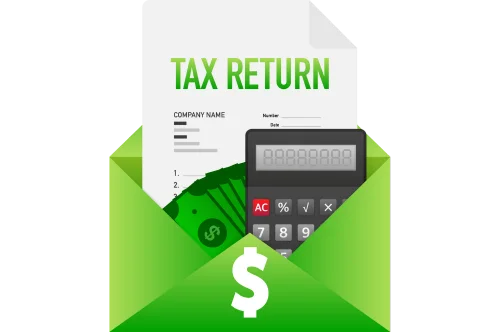Why Black Money Flourishes Despite Strict Tax Laws
Tax evasion has been a persistent issue in economies worldwide, particularly in India, where Black Money continues to thrive despite stringent regulations. Governments have introduced various policies and legal frameworks to curb illicit financial activities, yet the problem remains deeply rooted. This blog explores the reasons behind the persistence of Black Money, the loopholes in the system, and the broader economic consequences.
Understanding Black Money
Black Money refers to income that is either unreported or underreported to tax authorities. It is often generated through illegal means such as corruption, smuggling, or undeclared business transactions. While some of it circulates within domestic markets, a significant portion is stashed in offshore accounts or invested in assets like real estate and gold.
Reasons Why Black Money Continues to Thrive
1. Loopholes in Tax Laws
Despite reforms in the tax system, various loopholes allow individuals and businesses to manipulate the system. Complex tax structures, exemptions, and frequent policy changes create an environment where tax evasion is easier than compliance.
2. Corruption in the System
A significant reason for the growth of Black Money is corruption within tax authorities and financial institutions. When those responsible for enforcing laws are themselves engaged in corrupt practices, it becomes challenging to curb illegal transactions effectively.
3. High Tax Rates and Compliance Burdens
Excessive tax rates and bureaucratic red tape discourage individuals and businesses from fully disclosing their income. Instead, they find ways to evade taxes by hiding money or using illegal channels to avoid scrutiny.
4. Use of Cash Transactions
A substantial portion of the Indian economy still operates on cash transactions, which are difficult to track. Businesses and individuals use cash dealings to evade taxes, leading to a rise in Black Money circulation.
5. Weak Enforcement and Legal Delays
Even though the government introduces strict tax laws and penalties, weak enforcement and prolonged legal battles dilute their effectiveness. Many high-profile cases of tax evasion take years to resolve, allowing culprits to continue illegal financial practices.
Economic Impact of Black Money
The presence of Black Money has severe consequences on the economy:
- Loss of Tax Revenue: When individuals and businesses do not pay their fair share of taxes, the government struggles to fund essential public services like healthcare, education, and infrastructure.
- Inflation and Economic Inequality: A parallel economy fueled by Black Money leads to inflated asset prices, particularly in real estate, making essential goods unaffordable for ordinary citizens.
- Hindrance to Economic Growth: Money kept in offshore accounts or unproductive assets does not contribute to economic development, reducing investment in industries that drive job creation and innovation.
Government Measures to Combat Black Money
Over the years, the Indian government has implemented several measures to curb Black Money:
1. Demonetization (2016)
One of the most significant moves to tackle Black Money was the demonetization of ₹500 and ₹1,000 notes. While it forced some undisclosed income into the formal economy, its long-term impact remains debated.
2. Goods and Services Tax (GST)
The introduction of GST aimed to reduce tax evasion by streamlining indirect taxes. While it has increased tax compliance, some businesses still find ways to evade taxes through under-invoicing and unreported transactions.
3. Income Disclosure Schemes
Several voluntary disclosure schemes have been launched to encourage individuals and businesses to declare unaccounted income in exchange for reduced penalties. However, many evade participation, fearing legal repercussions.
4. International Cooperation and Data Sharing
India has signed agreements with multiple countries to share financial data and track offshore holdings. This has helped trace some hidden assets, but enforcing penalties remains a challenge.
How Can Black Money Be Controlled Effectively?
While existing measures have had some success, further reforms are needed:
- Simplifying Tax Compliance: A transparent and straightforward tax system can encourage individuals and businesses to report their earnings honestly.
- Enhancing Digital Transactions: Promoting cashless transactions through digital payments can help track financial activities more effectively.
- Strengthening Law Enforcement: Faster resolution of tax evasion cases and stricter punishments can act as deterrents against illicit financial activities.
- Public Awareness Campaigns: Educating citizens about the consequences of Black Money and tax evasion can foster a culture of compliance.
Conclusion
Despite numerous government efforts, Black Money remains a significant challenge to economic stability and growth. Addressing this issue requires a multi-faceted approach involving tax reforms, stricter enforcement, and increased public awareness. Only through collective efforts can the cycle of tax evasion and corruption be broken, leading to a more transparent and fair financial system.

ITR Filing
ITR Filing services provide full assistance with Income Tax Return submissions, ensuring accurate and timely compliance with all tax regulations and statutory requirements for both individuals and businesses.

Tax Audit
A tax audit reviews financial records to ensure compliance with tax laws, verifying income, deductions, and expenses. It minimizes errors and helps businesses avoid penalties, ensuring accurate tax reporting.

E-Commerce Tax Services
Navigating taxes as an e-commerce seller can be challenging due to the unique complexities of online businesses. Here’s a quick overview of the essential tax services that can help simplify compliance and optimize tax savings





